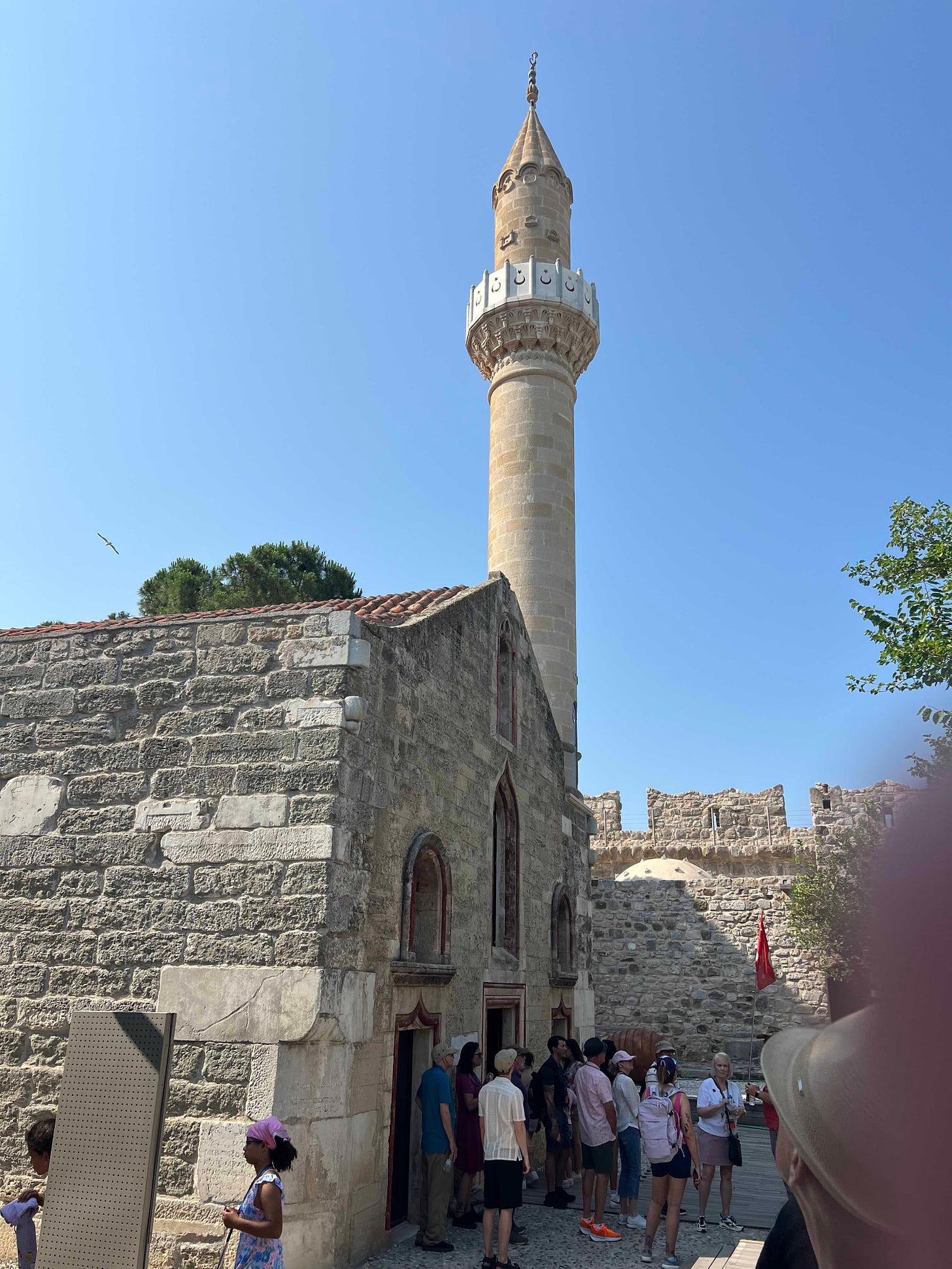Skilled in All Ways of Contending
Faction and strife are the essential features of the human condition.
On a cruise in the Aegean—the first time in 20 years—I am reminded that contending with adversaries lies at the heart of the human condition. For millennia, the lands and islands that are now the territories of Turkey and Greece have been contested by a bewildering array of tribes with conflicting tribal and religious identities.
Many of the places I have visited were the scenes of conflict between the Knights of Saint John and the Ottoman Turks. The following photo is of a little church that was built around 1407 in Bodrum Castle by the Knights of St. John.
The Knights constructed the castle out of the ruins of the Mausoleum at Halicarnassus, also knowns as the Tomb of Mausolus. They called their fortification the Castle of St. Peter.
After the Knights were kicked out of Bodrum in 1523 by Suleiman the Magnificent, the chapel was converted into a mosque and a minaret was added. The minaret was fired upon and struck by a French warship cannon in 1915, but later rebuilt.
When I was growing up in the United States in the 1980s and 90s, it sometimes seemed like “We the People” had overcome the faction and strife that had characterized the human condition for so long. This was an illusion. Clearly humans have a strong and enduring predilection to conflict with each other.
While on my modern Aegean odyssey, I have often thought of the ancient Greek hero Odysseus, and the first lines of Homer’s epic poem about his adventures.
Sing Muse, about that man, skilled in all ways of contending, who wandered
So many ways after he sacked the sacred citadel of Troy.
It was Odysseus’s idea to build the Trojan Horse to penetrate the city walls. His gift for coming up with such clever devices is what enabled him to get home to Ithaca, overcoming all the obstacles thrown in his way during his ten-year odyssey. Homer depicts him as tough, resourceful, clever, cheerful, eloquent, and wise.
Whenever you are feeling overwhelmed by all of the adversarial humans and circumstances in the world, think of Odysseus and how—no matter how great the adversary or formidable the obstacle—he always figured out a way to prevail. He is a timeless classic of a man who contends with an adversarial world.




Christians, and Jews as well, would point out that that strong and enduring predilection for conflict and strife was part of the original fall, in the garden of Eden, when Satan convinced Eve, and Adam, that basically, man can be like God, simply by eating a piece of fruit God forbade them to eat.
The first result: Cain killed Abel. And Cain has been killing Abel (brother against brother) since. But God did provide the solution: sending his son, Jesus to become a man like us and to willingly die on a cross for us. All we have to do is accept this gift of grace.
The “strong and enduring predilection to conflict” has, throughout history, been mostly fomented from above. The powerful have seen fit to divide the masses against each other. The masses have often seemed ready to go along, but without the propaganda and lies raining down from above would have more likely seen fit to get along with their neighbors. It was ever thus, and remains so today.